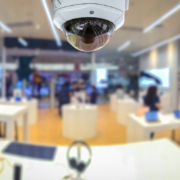High vs. Low: Which Voltage Business Security System Is Right for You?
When it comes to safeguarding your home or business, security systems are a must. Among the crucial decisions you’ll need to make is whether to opt for a high voltage or low voltage security system. Both options have their advantages and limitations, and understanding the differences between them can help you make an informed choice.
High Voltage Security Systems:
- Powerhouse Protection: High voltage systems are known for their robustness and reliability. They’re usually more powerful, making them an excellent choice for large commercial properties and industrial sites.
- Deterrent Factor: The sight of high voltage signs can be enough to discourage potential intruders. Criminals are less likely to tamper with a system that packs a serious electrical punch.
- Speedy Response: High voltage systems can trigger alarms and notifications almost instantly, minimizing response times for security personnel or emergency services.
- Complex Installation: The complexity of high voltage systems requires professional installation. Wiring, maintenance, and repairs can be more costly and may demand expert attention.
Low Voltage Security Systems:
- Cost-Effective: Low voltage systems are more budget-friendly, making them an attractive option for residential use and smaller businesses.
- Scalability: Low voltage systems can be easily expanded or modified as your security needs evolve. You can start small and build up over time.
- Reduced Deterrent Value: While low voltage systems can provide effective security, they may lack the intimidation factor of high voltage systems.
Choosing the Right System for You:
The choice between high voltage and low voltage security systems ultimately comes down to your specific needs, budget, and preferences. Here are a few factors to consider:
- Property Size: For larger properties, high voltage systems are often the better choice, while low voltage systems work well for smaller spaces.
- Budget: High voltage systems typically require a more substantial initial investment and ongoing maintenance costs, so consider your budget when deciding.
- Installation and Maintenance: Are you comfortable with DIY installations and minor maintenance tasks? If so, a low voltage system might be a practical option.
- Security Goals: Evaluate the level of security you need. If a visible deterrent is crucial, high voltage systems might be more effective. However, low voltage systems can offer reliable protection without the intimidating electrical punch.
In the end, both high voltage and low voltage security systems have their place in the world of security, and the right choice depends on your individual circumstances. Regardless of your decision, investing in a security system is an essential step in protecting your property and ensuring peace of mind.











Leave a Reply
Want to join the discussion?Feel free to contribute!